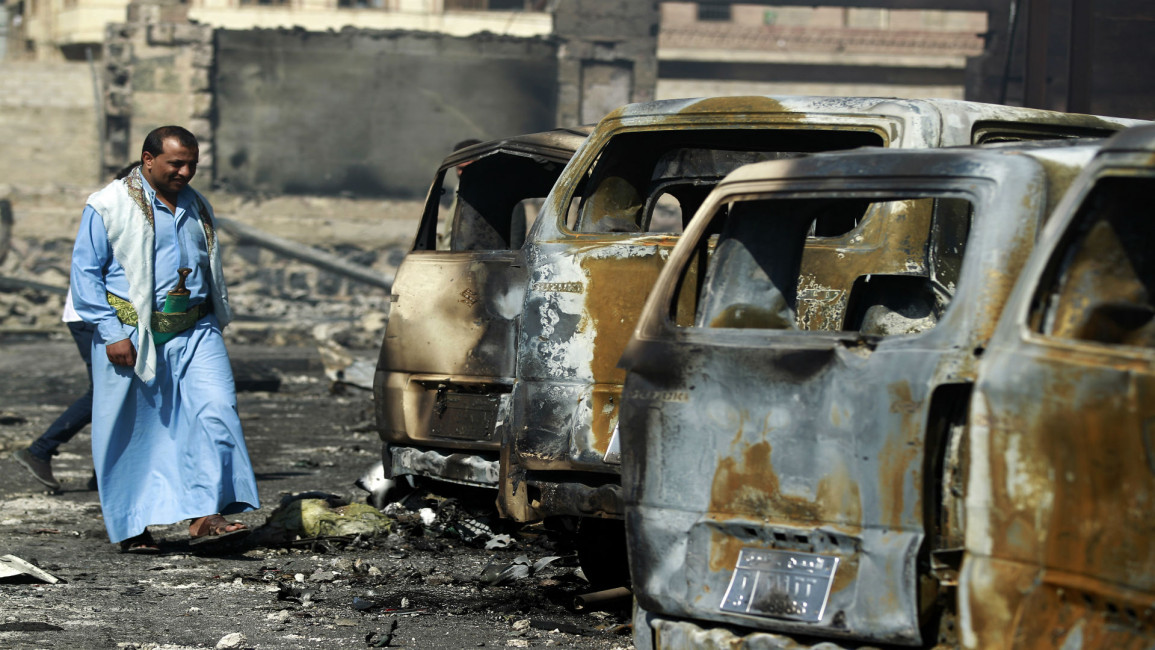Arab coalition defends Yemen airstrikes, admits 'shortcomings'
An investigation by the Saudi-led coalition in Yemen released Thursday acknowledged "shortcomings" in two out of eight airstrikes condemned by the UN, but defended the majority of deadly strikes on civilian populated areas.
A 14-member investigative team - made up of coalition states Bahrain, Kuwait, Qatar, Saudi Arabia and the United Arab Emirates, as well as Yemen - probed claims of attacks on a residential area, hospitals, markets, a wedding and World Food Programme aid trucks.
"We found shortcomings in two cases while the rest were in line with international humanitarian law," the team's Bahraini spokesman, Mansur al-Mansur, told a briefing in Riyadh.
The investigation found the coalition guilty of "mistakenly" hitting a residential compound in the Red Sea port city of Mokha after it had received "imprecise intelligence information".
Human Rights Watch had condemned the attack, which killed at least 65 civilians in July last year, as an "apparent war crime".
The investigative team called on families of victims to apply for compensation by contacting Yemen's Saudi-backed government.
 |
The investigators claimed that Houthi rebels were using the hospital as a hideout. |  |
The team also held the coalition responsible for airstrikes on Haydan hospital run by Doctors Without Borders (MSF) in the northern rebel stronghold of Saada.
The investigators claimed that Houthi rebels were using the hospital as a hideout, which is "a breach of international humanitarian law".
The investigative team's spokesman, Mansur al-Mansur, said the coalition should have warned MSF officials before targeting the building.
The team cleared the coalition of wrongdoing in the remaining six cases, including raids last year on a delivery by WFP trucks that had not coordinated with the coalition.
The 16-month-old war in Yemen has killed some 6,400 people and exacerbated a humanitarian crisis in the impoverished country, the United Nations says.
Saudi Arabia reacted angrily to a decision in June to blacklist the coalition after a UN report found the coalition responsible for 60 percent of the 785 deaths of children in Yemen last year.
UN chief Ban Ki-moon accused Saudi Arabia of threatening to cut off funding to UN aid programmes over the blacklist, a charge denied by Riyadh.
On Tuesday, Ban reported to the UN Security Council on his controversial decision to remove the coalition from the UN list of shame, a move that sparked an outcry from human rights groups.
"I still have very strong concerns about the protection of Yemeni children," Ban said.
Ban said he had received information on the steps taken by the coalition but that these fell short and "the content of the (UN) report (on children's deaths) stands".



